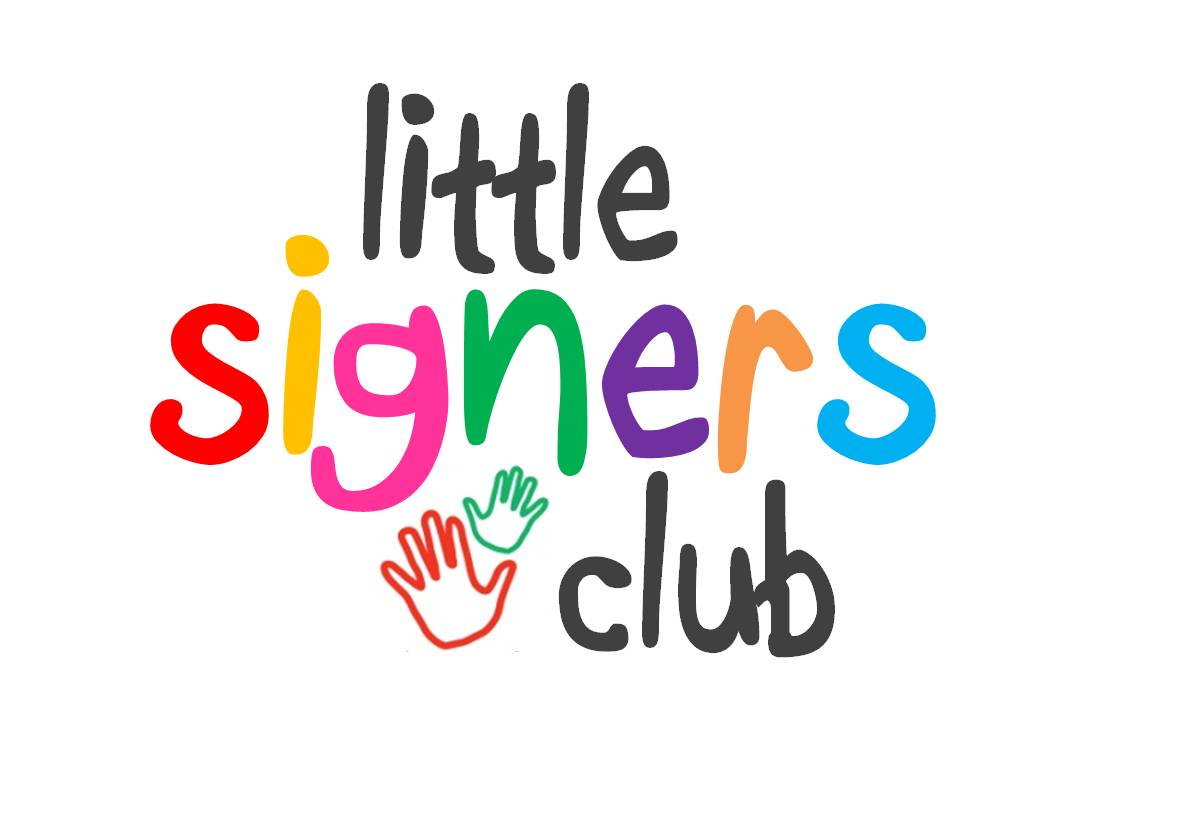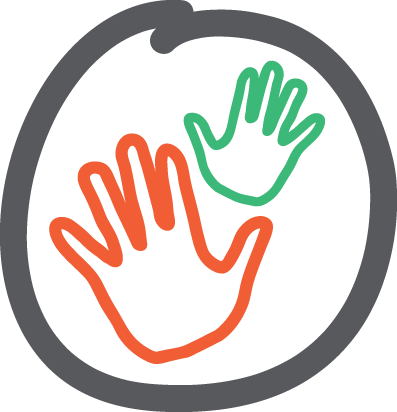ffun
not just
communication
ffc
‘signing with a baby gives insight into what is important, why it is important and and helps parents to understand what a brilliant acheivement early language skills are. This gives a child the very best start in life.‘
libby hill, consultant speech and language therapist

Babysigning is incredible.
It provides a unique platform to provide the very best start for your little one over a wide range of essential life skills and competencies.
Using signing with children enhances parenting with joyful and loving experiences; it means that parenting is responsive, respectful and you can meet your little one’s most immediate needs without having to guess.
A child who is confident that their needs will be attended to – and reassured of this, over and over again – is able to concentrate on higher level learning, facilitating exploration and understanding of their world.
Over time, signing allows a child to share their thoughts and interests, much sooner – sometimes many months before – a child would be able to verbalise what was on their mind.
Baby signing results in calmer, more confident children who tend to have better language acquisition at an earlier age.
It supports emerging speech and provides rich, joyful interactions for families to cherish – is it then any wonder that studies found that children who used babysigning were, on average, 12 IQ points ahead of their peers?
life skills and core competencies

Communication and Language Development
Studies have shown that the first 12 months is the critical period for triggering the language areas. Some have asserted that it’s not possible to catch up without this in the first year.
Babies are sociable beings so will attempt to interact with their carers. For many of us it is instinctive to make eye contact talk, sing….. But for many more it is no longer so readily natural.
The main benefit of baby signing is that it gives parents and carers a reason to enhance their interactions from very early on. The more communication attempts are recognised and rewarded the more they will develop.
Communication is a two-way phenomenon, it needs a speaker and listener and signing can help tremendously by a twofold approach.
Babies learn in different ways – auditorily, visually and kinaesthetically. When a baby hears a word it is a short auditory set of sounds; when this is boosted by a visual sign it capitalises on the babies visual strengths and so it helps a baby, or an older child, to learn words more quickly.
This heightened awareness strengthens the bond between the two and can only be beneficial to both sides. A parent who understands their baby will read the needs and wants of their child better which reduces frustration on both sides.

Literacy
Literacy is the ability to comprehend and communicate through reading and writing – and it begins much earlier than you might think as babies begin to understand and respond to spoken words.
Signing is ‘language in motion’ (Daniels) and as children learn best by ‘doing’ it helps little ones learn, retain and recall language more ably.
ICAN, the childrens communication charity, state that at 2 years of age that a child is likely to have 2 word sentences. Our experience of signing babies and toddlers is frequently that not only do they have longer sentences (up to 14 words in one instance) but that these sentences are also grammatically correct and completely in context too.
No wonder signing babies and toddlers are ahead of the game for literacy, language and higher level learning when baby signing is taught correctly!
‘By engaging infants, toddlers, and preschoolers in experiences that foster oral language and content knowledge, literacy skills, and cognitive ability, we build a foundation for children’s later academic success.‘ Judith A Schickdedanz, PhD

Music
Singing is recommended for all little ones – even during pregnancy!
Recent studies have shown that ‘exposure to music and music instruction accelerates the brain development of young children in the areas responsible for language development, sound, reading skill and speech perception.’
Singing traditional nursery rhymes with babies, toddlers and pre-schoolers helps to develop syntax and rhythm with speech.
We extend and enhance this when we combine signing and singing to:
· promote better communication
· build a larger word bank
· enable children to remember information more easily
· increase self esteem and confidence
· improve pre-literacy and language skills
Children prefer their parents voices over any others so please take the plunge and sing with your babe in arms or in the bath or whenever you feel the urge – even if you don’t feel tuneful.

Emotional Intelligence
There is more and more emphasis, interest and research around childrens emotional health and wellbeing than ever before.
Studies have highlighted the detrimental long term effects of stress in babies under 36 months which are related to the release of the hormone cortisol, and its links to depression in later life, specifically for teens and young adults. Cortisol is released into the blood stream when we become distressed or upset.
Signing helps enormously with emotional wellbeing for all little ones. Once a child has learned how to use signs (for basic needs especially) they are able to let you know that they are hungry, hurting, cold, tired without getting upset, without getting distressed; this vastly reduces the cortisol loads within their little bodies and the stress that they carry.
The importance of signing cannot be emphasized enough – the guesswork of understanding your child simply disappears. More importantly, you know that you have got it right. You can give comfort or respond to a need request immediately – in turn your child can be absolutely confident that they will have their needs met, even before speech, which encourages them to be independent.
A child who has a responsive parent, able to understand and meet their needs without any difficulty, is a much happier child. Happy children are more motivated to learn and engage with new activities, exploring interests, fuelling intellectual development. We refer to these as a ‘Peak Experiences’ – those that form positive connections, joyful interactions and memories that shine.
Conversely, children who don’t have their needs met are always concentrating on the unmet need, feeling ‘anxious and tense’; they are more likely to resort to crying and feel very unhappy, impacting on emotional intelligence and capability.

Imagination and Ideas
The world is full of awe and wonder for little ones.
Using signing gives grown-ups a small glimpse into the ideas and explorations of young children so much much sooner than waiting for the correct language and understanding to develop.
These interactions are vital for connection, bonding and attachment. To understand and to be understood.
Signing helps pre-verbal children to let us know what is on their mind as well as their interests, ideas and their inner world. It extends their vocabulary far beyond spoken ability – research suggests that a 9 month old baby may have as many as 75 signs but will likely have just 10 spoken words, most of which will only be recognised by immediate family. (Garcia et al)
Young children take advantage of using signing to communicate and will extend this to create their own signs too (Accredolo and Goodwyn) being confident of being able to make a gesture that is relevant to what they want to say.
There is a richness to our little ones lives that would be all too easy to miss, and dismiss. But when we take the time to connect and align with their interests, there is so much to engage with, to discover through their eyes and create experiences that are unique to us.

Motor Skill Development
Children develop skills at different times – and they are all unique!
You can encourage gross motor development by waving hello and goodbye. Introduce favourite nursery rhymes and songs with clapping actions in them – such as Wind the Bobbin Up – which is a classic nursery rhyme that helps little ones of all ages develop key gross motor skills such as pointing, clapping and wrist movements.
As little ones get older and their gross motor skills start to come under more control, they will start making simple signs. This will normally happen between 5-10 months but it can be earlier or later too. Signs become clearer as they are used more often and young children are always so pleased to have mastered signs that they rapidly want more!
All of these gentle signing interactions are wonderful exercise for the small muscles of the hands which in turn improve fine motor skills, strength and dexterity. Fine motor skills are not only a crucial foundation for writing and drawing (see above for Signing and Literacy) but also for enabling increased independence with life skills like dressing (doing up buttons and zips) teeth brushing and later on better control with cookery skills like chopping and peeling.

Confidence and Independence
Children (and grown-ups too!) need to feel safe in order to relax, enjoy, play and learn.
Little ones who don’t feel secure can become easily overwhelmed with everything that assails their senses on a daily basis. Signing provides the opportunity for your little one, even when tired or ill, to have your absolute and undivided attention as they tell you what they need to feel safe again. That might be a cuddle and mummy, or being at home in bed, or their teddy and some milk.
Over many years of research and observation we’ve come to know that laughter, smiles and eye contact for the basis of the very best part of cognitive development, providing a platform for ‘peak’ learning experiences. The very simplest way to support this platform is signing, in conjunction with speech.
Once a child is confident of having their needs met, they focus on interests, exploration, higher level learning experiences. Their independence comes from knowing that they can always be understood and so they are happy to discover the world around them, equipped to communicate confidently and effectively about their discoveries.
‘signing with a baby gives insight into what is important, why it is important and and helps parents to understand what a brilliant acheivement early language skills are. This gives a child the very best start in life.‘
libby hill, consultant speech and language therapist

rich, joyful interactions for families to cherish
Little Signers Club



